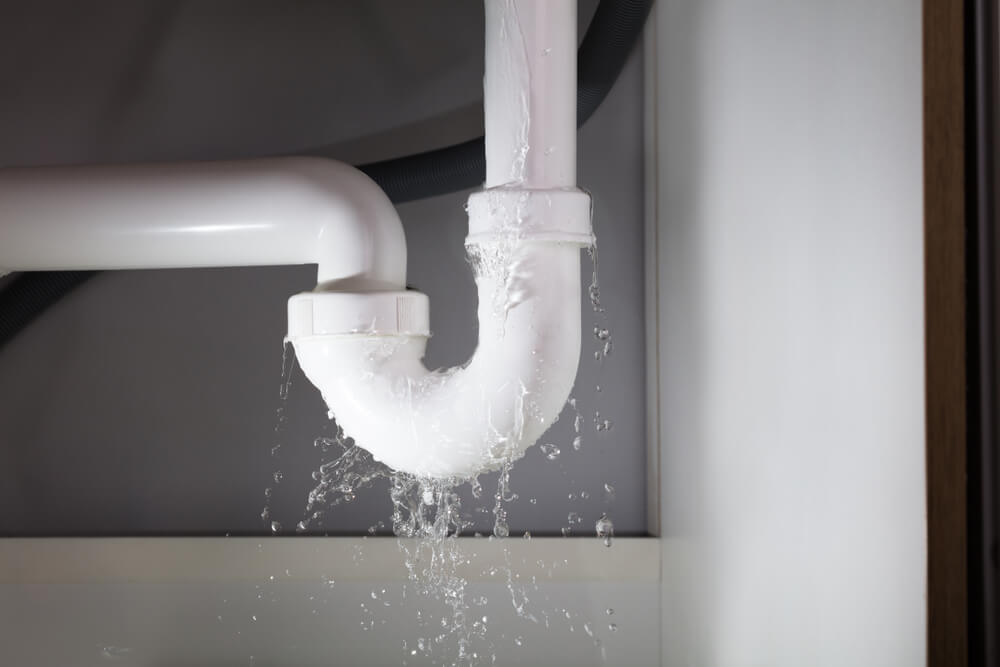Have you ever noticed that your taps are louder than usual when you turn them on? Or maybe you’ve experienced an unexpected leak or a burst pipe? These could be signs that your home has high water pressure. While high water pressure might seem minor, it can seriously affect your plumbing system. In this blog, we’ll explore how high water pressure can negatively affect your plumbing fixtures, fittings and appliances and provide practical tips on managing and reducing it.
Leaky Taps and Faucets
One of the most common issues caused by high water pressure is leaky taps and faucets. When the pressure in your pipes is too high, it puts extra strain on the seals and washers within your taps, causing them to wear out more quickly. This leads to annoying drips that waste water and increase your water bill. If you constantly tighten taps, it might be time to check your water pressure.
Burst Pipes
High water pressure can turn your plumbing system into a ticking time bomb. Over time, the excess pressure can weaken the joints and walls of your pipes, leading to sudden bursts. Burst pipes can cause significant damage to your property, leading to costly repairs and potential flooding. Regular plumbing system maintenance is crucial in identifying any weak spots in your pipes and preventing such disasters.
Shortened Lifespan of Appliances
Your household appliances, such as washing machines, dishwashers and water heaters, are designed to operate within a specific water pressure range. When the pressure exceeds this range, it can cause the internal components of these appliances to wear out faster. This leads to more frequent repairs and reduces the overall lifespan of your appliances, meaning you’ll need to replace them sooner than expected.
Noisy Plumbing
High water pressure can turn a simple shower into a noisy, unsettling experience. The increased pressure can cause your pipes to vibrate and make loud banging or hammering noises. This is known as a “water hammer” and occurs when the force of the water moving through the pipes is too strong. Not only is this noise irritating, but it also indicates that your pipes are under significant stress, which could lead to further damage if not addressed.
Running Toilets
A running toilet is not just a minor annoyance; it’s often a sign of a deeper issue. High water pressure can cause the internal mechanisms of your toilet to malfunction, leading to continuous running. This wastes significant water and puts unnecessary strain on your plumbing system. If you’ve tried fixing your toilet but it still won’t stop running, high water pressure might be the culprit.
Worn-Out Fixtures and Fittings
Fixtures and fittings like showerheads, taps and hose connections are vulnerable to high water pressure damage. The constant force can cause seals to break down, leading to leaks and reducing the effectiveness of your water-saving devices. If you’ve noticed that your water-saving showerhead isn’t working as well as it used to, it might be due to high water pressure wearing it out prematurely.
Increased Water Usage and Bills
High water pressure often means more water is being pushed through your pipes than necessary, leading to higher water usage and, consequently, higher water bills. Even if you’re not using more water, the increased pressure can cause water to flow faster and in greater volumes, resulting in wastage. Monitoring your water bills and checking for sudden spikes can help you identify if high water pressure is an issue in your home.
What Can You Do About High Water Pressure?
Now that you understand the potential damage high water pressure can cause, it’s important to take action to protect your plumbing system. Here are some practical steps you can take:
- Install a Pressure Regulator: This valve lowers incoming water pressure to safe levels. Consider having one installed by a professional.
- Schedule Regular Inspections: Regular checks by a plumber can catch and address high water pressure before it causes damage.
- Monitor Pressure: Use a gauge to ensure your water pressure stays between 40 and 60 psi. Act if it’s consistently higher.
- Fix Leaks Quickly: Even small leaks can signal bigger issues. Repair them promptly to avoid further damage.
Extend The Life Of Your Appliances—Contact Us For Maintenance
High water pressure can seriously damage your plumbing fixtures, fittings and appliances if not addressed. From leaky taps to burst pipes, the consequences can be costly and disruptive. At Oceanside Services, we diagnose and fix high water pressure issues to keep your plumbing system in top condition. Our team provides comprehensive maintenance and water pressure regulation services tailored to your needs. Don’t let a small problem turn into a major repair—get in touch with us today to protect your home and avoid unnecessary costs.



 5 Star Service
5 Star Service 







